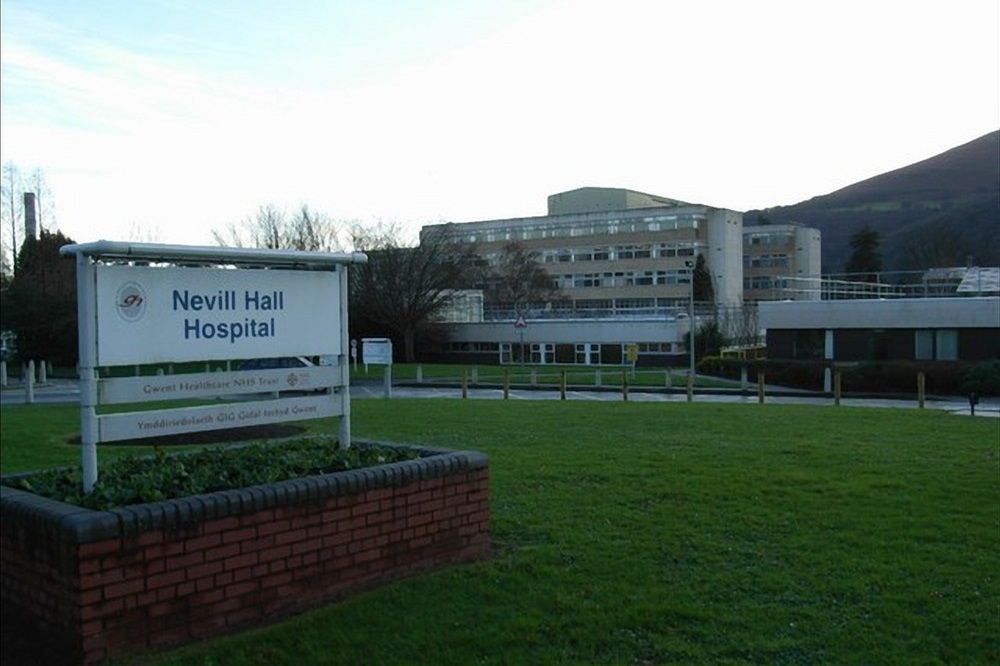Call for urgent change to infection control policies in Wales made at UK Covid-19 Inquiry

A woman whose father died from Covid-19 after he caught the virus in a Welsh hospital has called for urgent changes to infection control policies and the treatment of bereaved families so older generations are not left feeling as though ‘nobody cares’.
Anna-Louise Marsh-Rees, a founder of the Covid-19 Bereaved Families for Justice Cymru, gave a harrowing account of her father’s death to the UK Covid-19 Inquiry on Tuesday morning.
Retired electrical engineer Ian Marsh-Rees, was 85 when he died in Nevill Hall Hospital in Abergavenny, Monmouthshire, after initially being admitted with a gallbladder infection at the beginning of October 2020.
Ms Marsh-Rees said her mother still “cries daily” three years on from his death, and pressed inquiry chairwoman Baroness Heather Hallett to bring about change in her lifetime.
After hearing her evidence, Lady Hallett said she would do her “very best” to expediate necessary changes.
Responding to questions from the inquiry’s lead counsel, Hugo Keith KC, Ms Marsh-Rees told the hearing that, after her father was admitted to hospital, he was moved between eight different wards in six days, and claimed he was discharged on the eighth day after his ward was closed down.
Covid outbreak
She said the family were not told there had been a Covid-19 outbreak on the ward on which 21 people had tested positive – 12 of whom subsequently died – and said her father was sent home without being tested for coronavirus.
It was not until after his death that they were made aware that his discharge notes said he had been exposed to Covid-19, Ms Marsh-Rees said.
“My mother wasn’t told that he had been exposed at all,” she said.
“So he came home and she stayed with him in the same room and she subsequently got Covid, as did my sister, and she suffers from long Covid now.”
Ms Marsh-Rees said her father’s health deteriorated rapidly after arriving home but that his symptoms were “overlooked” by several GPs.
After he was readmitted to hospital she said her family were extremely shocked to learn he had contracted the virus.
She claimed the family later learned that a DNAR (do not attempt resuscitation) instruction had been placed on her father’s notes without them being consulted.
Ms Marsh-Rees said she decided to form the Wales-focused bereavement group after hearing others’ stories and realising her experience was not an isolated one.
“We want to find out what happened and why it happened. Who was responsible, who was accountable?” Ms Marsh-Rees said.
“But we want change,” she added.
“We are trying to channel that grief, frustration, heartbreak into areas where we can really make change and use our lived experience to do that.”
Infection control
Ms Marsh-Rees said the group’s focus has been challenging the differing processes in place among health boards and care homes, particularly in terms of infection control, the availability of PPE and respirators and ventilators for health and social care staff, how bereaved people are supported in those settings, and ensuring the dignity of those who have died.
The group has successfully lobbied the Welsh Government to hold an inquiry into nosocomial infections in Welsh hospitals during the Covid-19 pandemic.
However they have been scathing of the Government’s refusal, unlike Scotland, to carry out its own national inquiry.
A Wales Covid-19 Inquiry Special Purpose Committee has been set up by the Senedd to look at reports at each stage of the UK Covid-19 Inquiry and examine whether any gaps identified in the country’s preparedness and response should be subject to further examination.
“We’re very interested in ensuring the at-death and after-death impact of the pandemic are considered as well,” Ms Marsh-Rees continued.
“So, end-of-life care, dignity in death, palliative care, and – being kind of crude – what happens to bodies.
“Something that was not communicated to us was that once somebody with Covid dies they are almost treated like toxic waste – they are zipped away.
“Nobody told us that you can’t wash them, you can’t dress them, you can’t do any of those things that you can usually do for funeral ceremonies.
“My dad did not have a good death, most of our members’ loved ones did not have a good death.”
At the end of her testimony, Ms Marsh-Rees said: “There’s a whole generation, my mum’s generation, that haven’t got the mechanisms like maybe I have to complain and question.
“They are heartbroken and really in shock. My mum cries daily, even though it’s been nearly three years.
“We’d like some change to happen in their lifetime, because if it doesn’t then they’re just left with that feeling of nobody cared.”
Lady Hallett said: “We’ll do our best.”
Grief
She told Ms Marsh-Rees: “I’m extremely grateful for everything you’ve done. It takes great courage to channel your obvious grief into trying to help others and to reduce the suffering of others in the future.
“Grief is bad enough in normal circumstances but grief during times of lockdown isolation in the circumstances you described is just dreadful.”
Earlier in the session, the inquiry heard from one of the founding members of the Covid-19 Bereaved Families for Justice group, Matt Fowler, who said many who have spoken out about their losses have faced abuse online and sometimes in person from Covid-deniers.
Lady Hallett branded such abuse “plain cruel”, saying it has piled “trauma on trauma”.
Mr Fowler said he had helped co-found the campaign group to give voice to those worst-affected by the pandemic due to people feeling “abandoned” by the Government.
Representatives from the Covid Bereaved groups from Scotland and Northern Ireland also gave evidence.
Support our Nation today
For the price of a cup of coffee a month you can help us create an independent, not-for-profit, national news service for the people of Wales, by the people of Wales.





